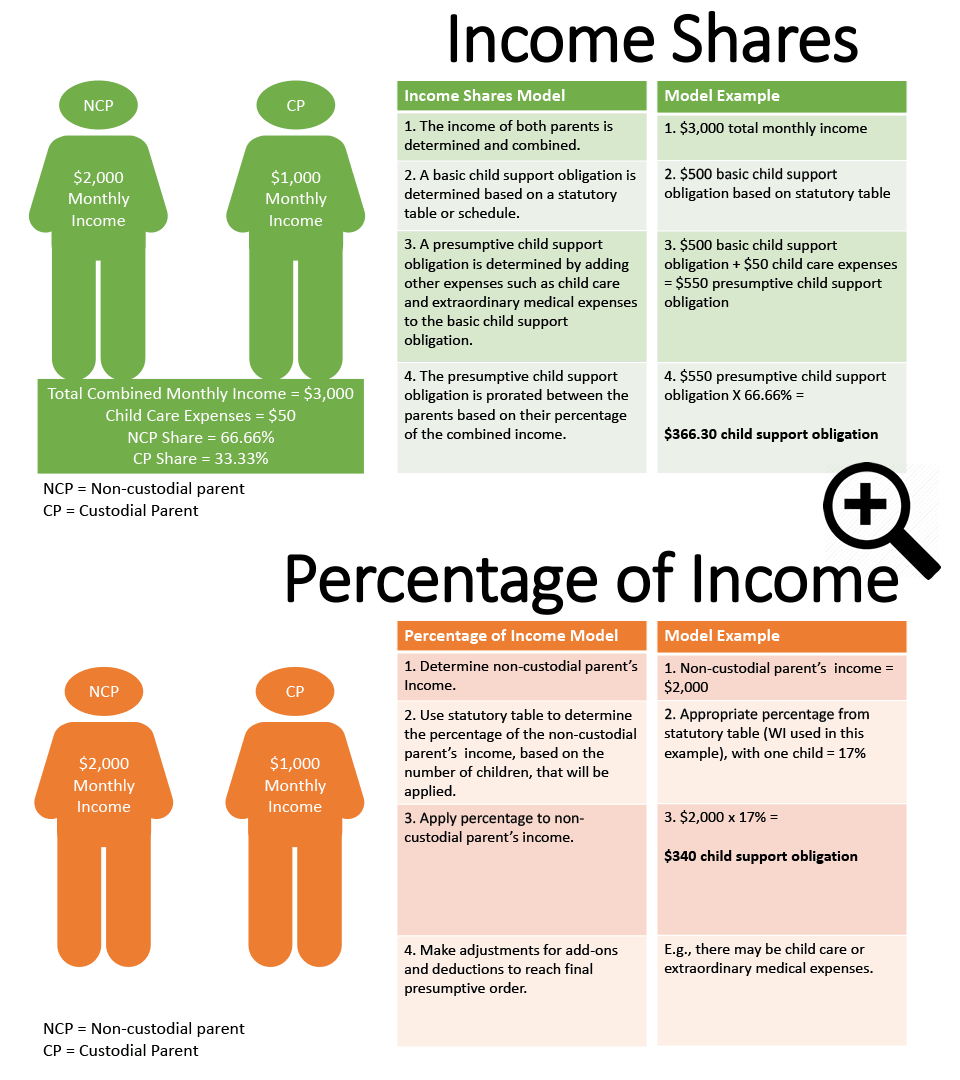“Up until now, Illinois has followed the “Percentage of Income” model of child support, calculating support based on a flat percentage of only the non-residential parent’s income without any consideration of the residential parent’s income.”
Illinois is getting ready to join 39 other states where income calculations will not be based on both custodial and noncustodial parent incomes.
Both the Illinois House and Senate passed House Bill 3982 and and goes into effect on July 1, 2017. Signed by the Governor Rauner and effective July 1, 2017
Here is some of what the Bill says:
(A) to establish as State policy an adequate |
standard of support for children, subject to the |
ability of parents to pay; |
(B) to make awards more equitable by ensuring more |
consistent treatment of persons in similar |
circumstances; |
(C) to improve the efficiency of the court process |
by promoting settlements and giving courts and the |
parties guidance in establishing levels of awards; |
(D) to calculate child support based upon the |
parents' combined adjusted net income estimated to |
have been allocated to the child if the parents and |
children were living in an intact household; |
(E) to adjust the child support based upon the |
needs of the children; and |
(F) to allocate the amount of child support to be |
paid by each parent based upon the child support and |
||
the child's physical care arrangements. |
||
What does this mean for you? The State will now consider the custodial parent’s income in their calculations.
Here is a model by the National Conference of State Legislatures:
That is a national graph. Make sure you check with an attorney in your state to interpret precisely how your statute will be interpreted in your courts.
It appears that the statutes going to this model are attempting to get closer to what we have discussed in my book, “NOT in The Child’s Best Interest” that child support should be applied equally to all parents, married or not. You should not be held to different standards of support just because you are no longer married. And looks like these states are starting to recognize that the cost of raising a child doesn’t change just because you get divorced.
Before you rush off on July 1st to ask the court to modify your order because of this Bill, HB 3982 states that enactment of the Bill in and of itself does not constitute a substantial change in circumstances for purposes of modifying past-ordered support.
If you are currently in child support proceedings right now, you might want to ask your attorney to make the judge aware of this law HB 3982 that goes in to effect on July 1, 2017. Your judge can deviate from the standard child support calculations as long as he provides the reason for the deviation. By providing this Bill to your judge, you provide your judge with a reason to deviate from the old way of calculating child support, and add more weight to your arguments. For instance, if you are arguing that the other parent makes far more than you, and that the child’s needs are being met, and therefore your portion should be much lower. Or if you are arguing that the other parent does not require as much of your high income because the child’s needs are being met, you now have something more for the judge to use to add weight to your argument.**
If you are not currently in court proceedings, but planning to have child support reviewed, you just might want to wait until after July 1, 2017, so that you can benefit from this law.
In addition, did you know that if you are the noncustodial parent in Illinois that you can ask for child support to be paid to you? Keep an eye out for our blog post on that topic next.
Check back to our blog every day for new and continuing information about this and other topics related to family rights.
**I am not an attorney and do not practice law. Please check with an attorney or questions of law.
Citations:
*Upcoming Changes to Illinois Child Support Law by Stephanie Tang in YLD News August 2016
*National Conference of State Legislatures – Child Support Guideline Models by State.




























